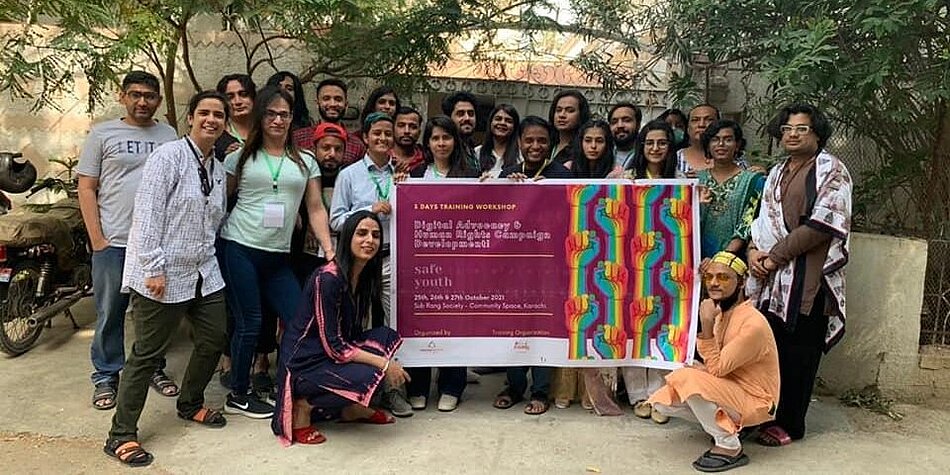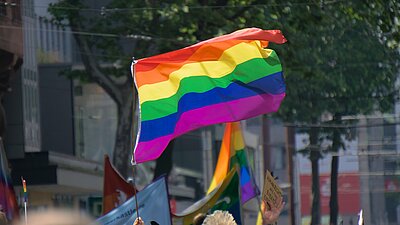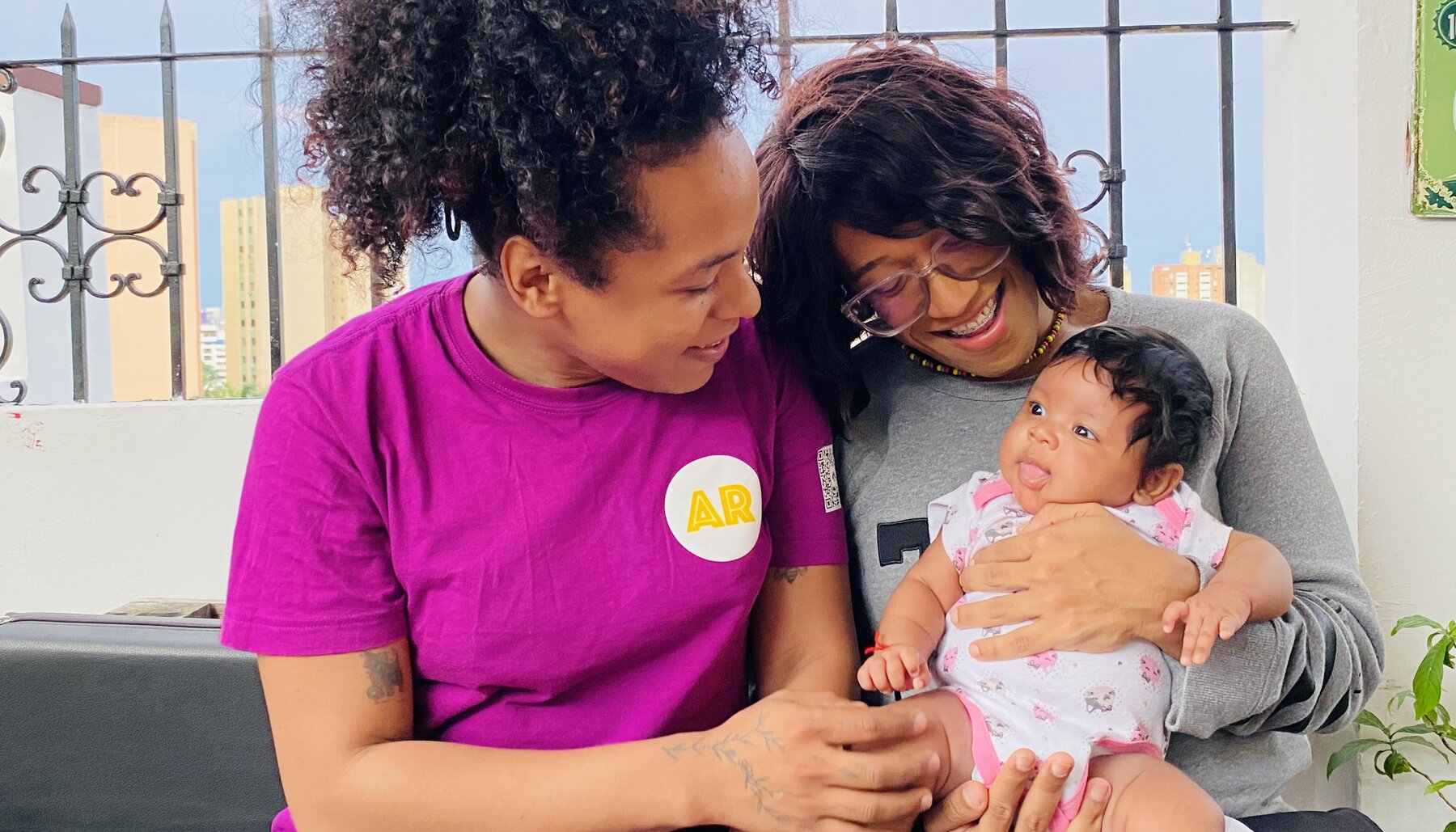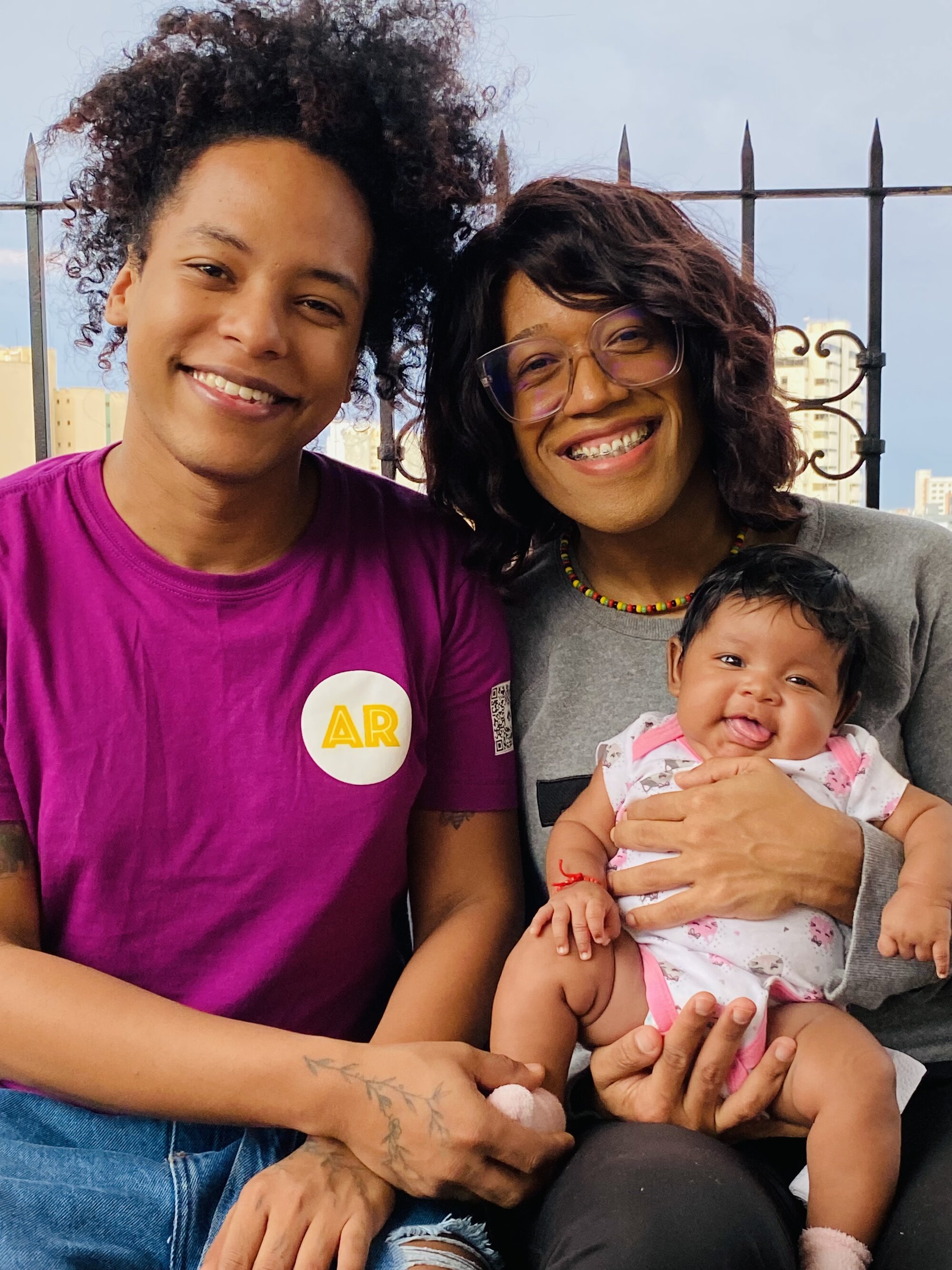Mauri Balanta Jaramillo, 36, is a human rights activist and filmmaker from Cali, Colombia. Her work empowers marginalised communities in Latin America and her academic studies explore the intersectional issues of race, gender and sexuality. She talks to us about both her public advocacy and her personal experiences as a black trans woman in Colombia.
Mauri, you're an academic, you're an activist, you shoot documentaries… how do you choose to describe yourself?
[Laughs] Yes, who am I? Mmm…I would introduce myself as a black, trans, non-binary, activist, researcher, filmmaker, community builder. That's about me.
Afro-descendant people in Latin America experience marked inequality
And you grew up in Cali?
I was born in a small city in the west of the country called Pasto, but my parents moved to Cali when I was three years old and I've lived there most of my life. Cali has the second-largest population of Afro-descendant people in Latin America and they live in conditions of marked inequality, experiencing racism, impoverishment and extreme violence, especially police brutality.
The particular district where I lived and worked suffers from the stigmatisation of the rest of the city. So, when Afro-Colombians go to a mall or walk around tourist areas, we get racially profiled and criminalized under the perception of "They are going to rob us."
How did you come to your understanding of your identity in that environment?
That's an interesting question… I started my transition six years ago, but I was always delicate and feminine as a boy. In Cali, most of the boys dreamed of becoming the most successful soccer players in the world – the Colombian ideal of masculinity means you have to love soccer. I've never loved to play soccer! The boys rejected me for that and I socialised more with girls. By the time I was about 14 or 15, I realised I might be gay.
When did you come out to your family?
I don't think I ever really did! I remember my sister being curious, in a non-intrusive way, asking, "Do you think this guy is cute?" or "Would you like to try this make-up?" She has a very humane, gentle way of relating to people and has never judged me. I think she always knew that I was queer, but she didn't know how to approach this issue, socially speaking. It was the same with my friends. Even my dad, who is quite conservative, has always been very sweet and respectful. I didn't feel the need to openly say, "I'm gay" or "I'm trans." I was already in my twenties when I told my grandmother that I liked a boy. With a smile she just said, "OK."
Article
All Colours - the Fight for Trans Rights in Pakistan

Von Hanna Latsch & Malina Becker
Pakistan is known to be a conservative country. Still, in 2018 the Pakistani government passed one of the world's most progressive trans rights bills. Kami Sid and Hina of the NGO Sub Rang Society and participants in ifa's CrossCulture Programme Synergy shine light on the everyday life as transgender people in Pakistan, talk about their activism and make clear what still needs to be done to improve the situation for trans people in their country.
"My sister always knew that I was queer"
In your academic career you've studied and written about the impact of colonisation on gender and sexuality. How does your race affect your experience as a trans woman?
I always sensed that there was something strange about my experience of my race and sexuality, but it took a while to understand what it was. I am going to be honest here: people exoticise my sexuality because I’m blaсk. Men – especially white men – expect that I'm willing to do all sorts of things. They tell me, "Black people are the best in bed."
The fact is, to be a black trans woman is different from being a white one, because colonialism portrays black people as animals and, therefore, with a wild sexuality. When it comes to gender passing, white trans women are generally considered more feminine and attractive just because of their skin colour. This happens to me a lot with my trans friends. The darker your skin colour, the less feminine you are perceived as being.
How easy is it to find medical support and fertility treatment for trans women in Colombia?
It's very difficult because you need to be prepared to fight. The Colombian health system itself is horrible, so you will face trouble in finding the right information, medical guidance, assistance, and institutions for a gender transition.
Colonialism affects the experience of Black trans people
One of my latest documentary projects follows the first case of trans pregnancy in Colombia – it's about one of my friends, Adel. He is a trans male and I have been following him and recording his pregnancy. It took a lot of awareness-raising to get nurses and doctors to stop calling him "she". It is exhausting to always have to explain who you are.
Podcast
Queer Rights Under Pressure

11. November 2021
In this episode we talked to Egyptain LGBTQIA+ activist 'Bonobo' about the situation in their home country. In addition to the global backlash of queer rights, repressive regulations prevent NGOs from doing their vital work. Though some successful projects exist, there is still a lot to be done. 'Bonobo' explains what actions are required in order to improve the situation, and stresses which duties the foreign cultural policy has in this fight for justice.
"The narrative is a historical milestone in Latin America"
What stage is the documentary project at now, and how is Adel doing?
We are in the final stage of production, and we hope the documentary can be released in the summer of 2023 to show it at film festivals and events on human rights for Afro-descendants and LGBTIQA+ people.
It’s a narrative that’s a historical milestone in Colombia and Latin America. In the end, we recorded not only the pregnancy, but also the first 3 or 4 months of parenting. Mar Celeste has just turned three months old and she is very healthy, active and playful. She loves to be in the water, which is good since her name means 'Sky Blue Sea'.




